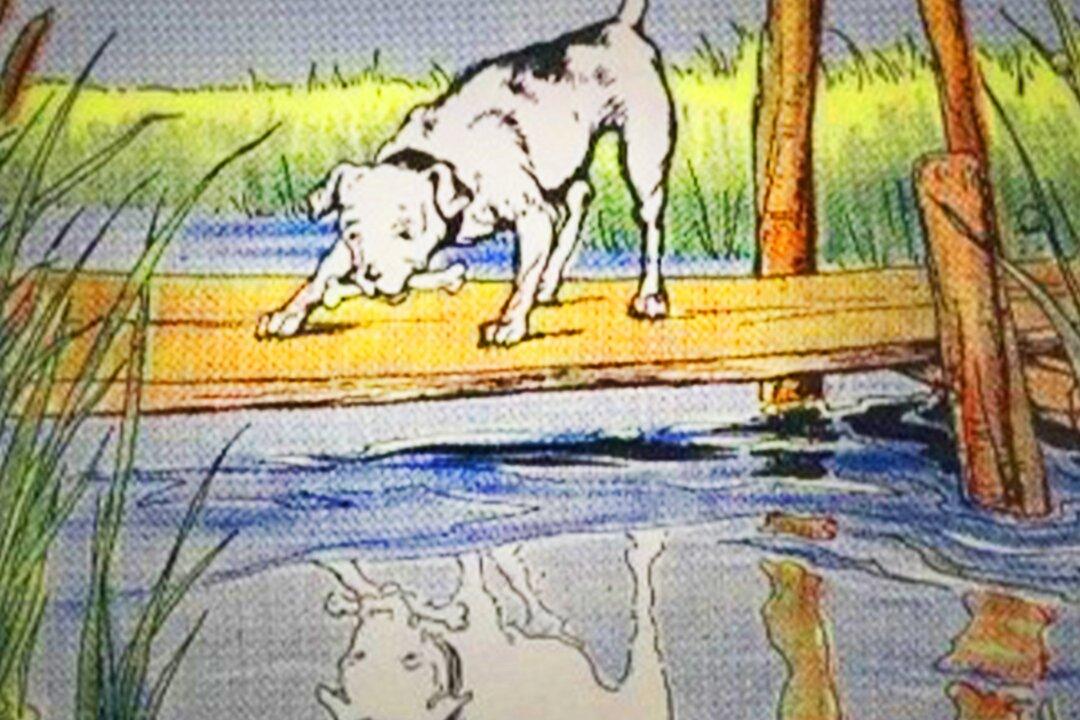A dog, to whom the butcher had thrown a bone, was hurrying home with his prize as fast as he could go.
As he crossed a narrow footbridge, he happened to look down and saw himself reflected in the quiet water as if in a mirror. But the greedy dog thought he saw a real dog carrying a bone much bigger than his own.






